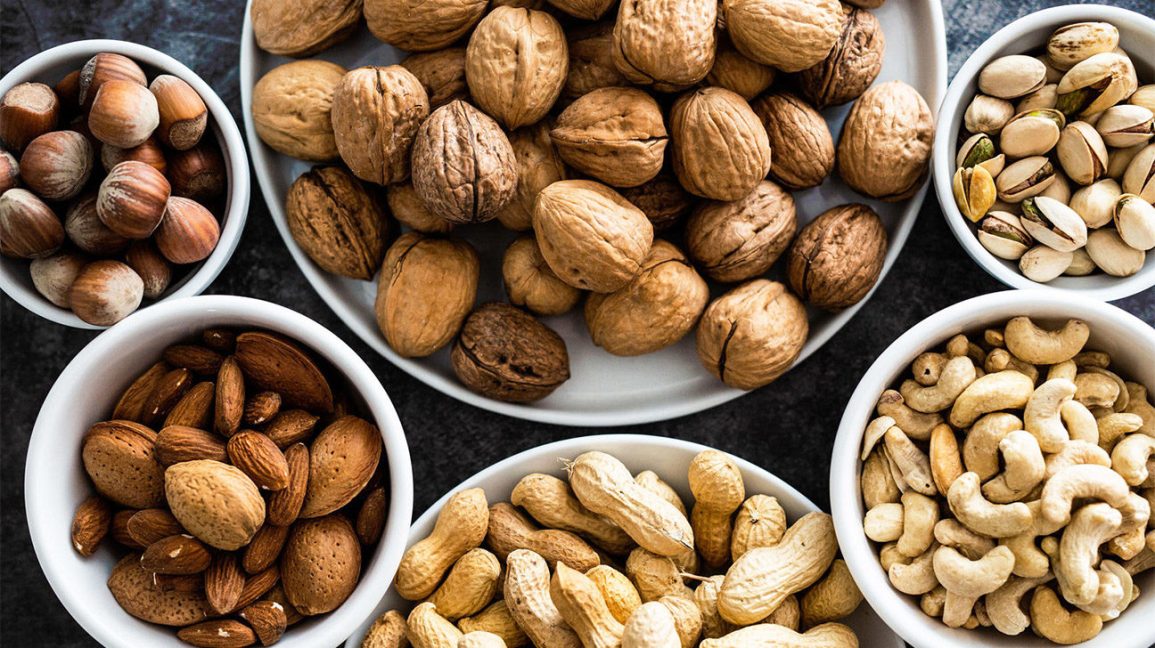
Let's talk about Vitamin E...
What is vitamin E?
Vitamin E is a group of eight compounds, including tocopherol, found in many foods. It’s a fat-soluble vitamin, which means you don’t need to take it every day because it’s stored in the liver until needed.1
Vitamin E is important for strong immune function and helps maintain healthy skin and eyes.2 It’s also an antioxidant, so it protects the body from damage due to free radicals (oxidation).
Plant oils, like olive oil, are a rich source of Vitamin E.
Soya, nuts and cereal are good sources too.3
Most people get all the Vitamin E they need from their diet, so a deficiency is rare. Symptoms of a vitamin E deficiency can include a lack of coordination and muscle weakness.4
What does vitamin E do in the body?
Vitamin E is a powerful antioxidant, helping protect cells against free-radical damage. It plays an important role in your immune system, the body’s defence against illness and infection.5
Vitamin E also helps maintain:6,7
- cell membranes
- formation of red blood cells
- cell to cell communications
- healthy skin
- normal vision
- blood clotting, using vitamin K
How much vitamin E do I need?
There’s no specific recommendation for Vitamin E in the UK, but the NHS advises 3mg a day for women and 4mg for men.8 This can be provided in roughly 10 almonds.9
The European Food Safety Authority recommends higher levels: 11mg for women and 13mg for men.10
Vitamin E can be found in a range of foods, especially fats and oils, so your diet should provide all the Vitamin E you need.11
Which foods are the best sources of vitamin E?
Foods that contain Vitamin E include:12,13
- wheatgerm, sunflower, sesame and olive oils
- avocado
- nuts
- salmon
- red peppers
- wholegrain bread
- egg yolks
Vitamin E deficiency
Most people get more than enough Vitamin E from their diet, so deficiency is rare. However, people with health conditions that make it difficult to absorb fats and fat-soluble vitamins, like cystic fibrosis and Crohn’s disease, may be at risk of a deficiency.14
Symptoms of a vitamin E deficiency include:15
- muscle pain
- vision problems
- disorientation
What happens if I consume too much vitamin E?
Little is known about the effects of high doses of Vitamin E on the body, but scientists have reported that very high doses of Vitamin E over long periods may be connected to an increased risk of stroke.16
The NHS says that taking up to 540mg of vitamin E a day is unlikely to cause harm.17
When should I take vitamin E supplements?
You’re very likely to get all the Vitamin E your body needs from eating a healthy, balanced diet.18
However, if you have a health condition that prevents your body from absorbing fats, talk to your doctor first. Avoid taking a vitamin E supplement if you have iron-deficiency anaemia, hyperthyroidism or are taking anti-coagulant medicines.19
Should women take a vitamin E supplement during pregnancy?
No, it’s best to focus on getting your Vitamin E from your diet. A 2015 Cochrane review of 21 trials found taking Vitamin E supplements during pregnancy is associated with stomach pain and early rupture of the membranes once full-term.20
What are the potential benefits of taking a vitamin E supplement?
As well as boosting the immune system,21 studies have found vitamin E supplements can help improve:
- period pain22
- nail health23
- eczema symptoms24
Vitamin E Natural or Synthetic?
Natural Vitamin E is derived from vegetable oils, primarily soybean oil. Synthetic Vitamin E is produced from petrochemicals. ... Natural Vitamin E is a single stereo isomer. Synthetic E is a mixture of eight stereo isomers, only one of which is the same as natural Vitamin E (alpha-tocopherol).
A number of recent studies have shown significant differences between natural-source and synthetic vitamin E. They have also shown that natural-source vitamin E is more efficiently used by the body than its synthetic counterpart.
Simply put, the body has a preference for natural-source vitamin E over synthetic vitamin E25
Sources
1. National Institutes of Health. Vitamin E. Available from: https://ods.od.nih.gov/factsheets/VitaminE-HealthProfessional/
2. NHS. Vitamin E. Available from: https://www.nhs.uk/conditions/vitamins-and-minerals/vitamin-e/
3. As above
4. Cathleen Crichton-Stuart. What are the symptoms of low vitamin E? Available from: https://www.medicalnewstoday.com/articles/321800.php
5. Rizvi S, et al. The Role of Vitamin E in Human Health and Some Diseases. Available from: https://www.ncbi.nlm.nih.gov/pmc/articles/PMC3997530/
6. HSIS. Vitamin E (Tocopherol). Available from: https://www.hsis.org/supplements/vitamin/
7. Medline Plus. Vitamin E. Available from: https://medlineplus.gov/ency/article/002406.htm
8. As Source 2
9. SelfNutritionData. Nuts, almonds: Nutrition Facts & Calories. Available from: https://nutritiondata.self.com/facts/nut-and-seed-products/3085/2
10. European Food Safety Authority. Overview on Dietary Reference Values for the EU population as derived by the EFSA Panel on Dietetic Products, Nutrition and Allergies (NDA). Available from: https://www.efsa.europa.eu/sites/default/files/assets/DRV_Summary_tables_jan_17.pdf
11. As Source 2
12. As Source 4
13. As Source 6
14. Natalie Silver. How to Identify and Treat a Vitamin E Deficiency. Available from: https://www.healthline.com/health/food-nutrition/vitamin-e-deficiency
15. As above
16. As Source 1
17. As Source 2
18. As Source 2
19. As Source 6
20. Rumbold A, et al. Vitamin E supplementation in pregnancy. Available from: https://www.cochrane.org/CD004069/PREG_vitamin-e-supplementation-pregnancy
21. As Source 5
22. Ziaei S, Zakeri M, Kazemnejad A. A randomised controlled trial of vitamin E in the treatment of primary dysmenorrhoea. Available from: https://obgyn.onlinelibrary.wiley.com/doi/full/10.1111/j.1471-0528.2004.00495.x
23. Keen MA, Hassan I. Vitamin E in dermatology. Available from: https://www.ncbi.nlm.nih.gov/pmc/articles/PMC4976416/
24. As above
25. Human plasma and tissue alpha-tocopherol concentrations in response to supplementation with deuterated natural and synthetic vitamin E. Am J Clin Nutr 1998; 67:669-683.
The Transforme Blog and its materials are not intended to treat, diagnose, cure or prevent any disease. All material on The Transforme Blog is provided for information purpose only. Always seek the advice of your physician or a qualified healthcare provider for any questions you have regarding a medical condition, and before taking supplements and undertaking any diet, exercise or other health-related programs.
